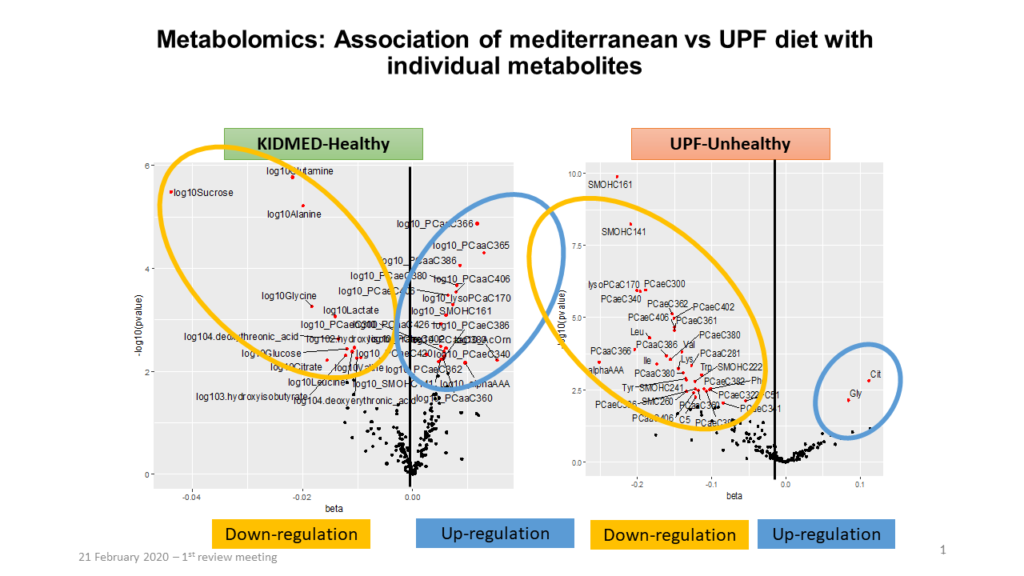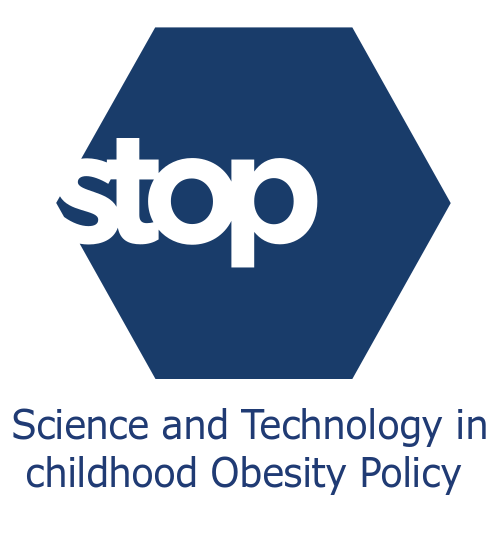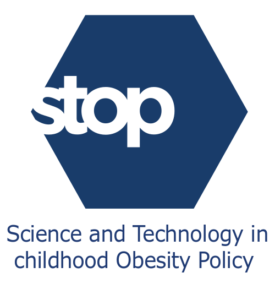By Paolo Vineis
STOP is conducting extensive research with biological markers that explore the relationships between behaviours (e.g. physical activity, diet) and the risk of obesity in children. This is achieved through the analysis of data on the modulation of gene expression (epigenetics), a whole set of blood proteins (markers of inflammation), and metabolic changes that are
systematically explored with a procedure called metabolomics. The figure below shows an exciting finding from one of the epidemiological studies included in STOP: when the metabolic changes in the urine of children in Crete were analysed according to two types of diet (Mediterranean, Kidmed; and UPF, ultraprocessed food), clearly different metabolic patterns emerged. One of the patterns associated with UFP involved the metabolism of glucose. This type of research is conducive to the identification of early markers that can be used for risk prediction and to investigate the impact of healthier diets.
In our epigenetic analyses we found that a mitochondrial gene involved in glucose metabolism was overexpressed in children with excessive growth and its expression was also related to the socio-economic background of the parents.


